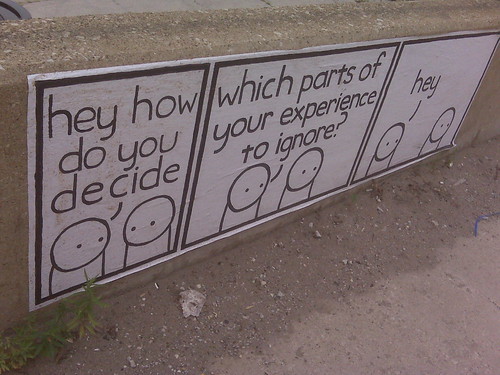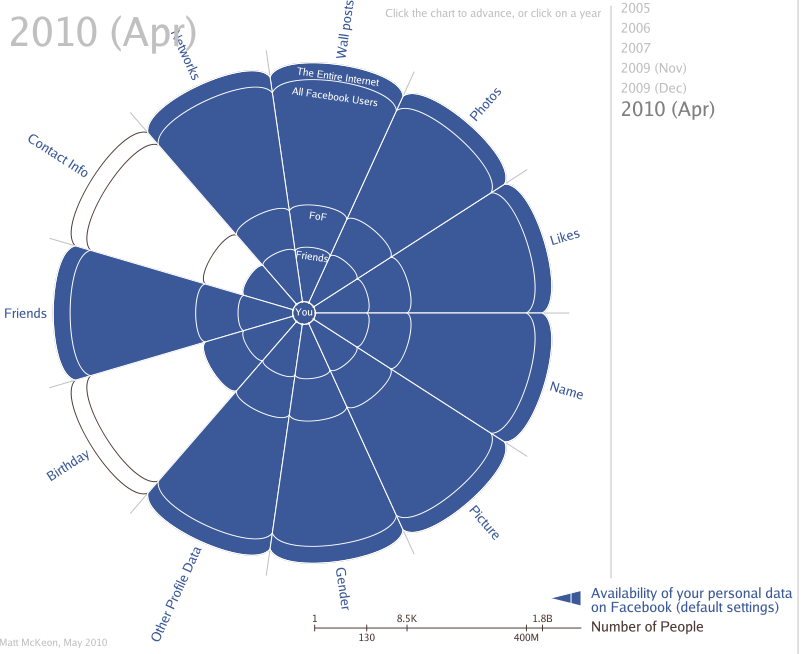 I was following a discussion on a mailing list today about the various internet blocking and filtering policies that different schools implement. Someone said their school was revising their fitering/blocking policy and wanted to know what others were doing. From the replies I saw, it seems that many schools are still running scared of what their kids might do on the web, and still block access to useful services like YouTube and Flickr, and pretent things like Facebook and Twitter don’t exist. Seems that even after 10 years, Web 2.0 is still a scary bogieman to many schools.
I was following a discussion on a mailing list today about the various internet blocking and filtering policies that different schools implement. Someone said their school was revising their fitering/blocking policy and wanted to know what others were doing. From the replies I saw, it seems that many schools are still running scared of what their kids might do on the web, and still block access to useful services like YouTube and Flickr, and pretent things like Facebook and Twitter don’t exist. Seems that even after 10 years, Web 2.0 is still a scary bogieman to many schools.
I’m curious to know why, in the schools that do block access to certain sites (and it sounds like it tends to be mainly social media sites), what educational reason is given. I’m just trying to look at the other way for a moment and instead of assuming that sites should be blocked unless a case it made to unblock them, why we never seem to do it the other way around. Is there really any reliable research to support the idea that we block first and ask questions later? In schools that block, what are the educational arguments given for why that blocking takes place?
The usual reason is “duty of care”. The idea that we need to be doing everything we can to protect our students from every possible harm. I’m more concerned about the other kind of harm. The kind caused by overprotective shielding from the real world.
I took a Year 6 class the other day and was teaching them some “Googling skills” and ways to find information quickly online. We had an impromptu game of Google Trivia, where I was asking them quiz-style questions and they were trying to find the answers as quickly as possible. At one point I simply said “Look up your own name”. To the great surprise of many of them (about half the class) they DID find themselves online – mentions of their name in sporting results, school newsletter articles, family businesses, local newspapers stories, etc. ALL of them were surprised and NONE of them had any idea that there was information about them to be found online (ie, they didn’t put the information online themselves).
It led into a really interesting discussion (and an idea that drives the access policy we implement at my school)… it’s not a question of IF you can be found online, it’s just a question of WHAT will it say about you. There is no question that these students will end up with a digital footprint/tattoo as they grow older, and the “body of evidence” that defines their online existence will continue to grow as they get older. This will happen whether they consciously do it or not… Does anyone seriously believe it won’t? So there is a fairly strong compulsion (in my opinion anyway) that we need to educate children to create and manage their digital presence/persona/footprint so that it says the right kinds of things about them. Putting our head in the sand and pretending that places like Facebook with it’s 600 million inhabitants, or Twitter with over 200 million users, can simply be ignored because there might be some risk involved is a massive failure of duty of care because we are neglecting to responsibly educate our kids in the very worlds they inhabit.
Blocking access to the social networks, and pretending these things will just go away if we ignore them, is foolhardy at best and dangerous at worst. I’m actually looking forward to the first class action suit against an education system for knowingly restricting students’ access to environments that are a core part of growing up in a digital world. It’s not the “stranger danger” of the online world we need to be concerned about. It’s the culture of fear and uncertainly that we propagate by not allowing our kids to play responsibly in that world.
http://www.flickr.com/photos/24369373@N00/4817906071


 In the past six days I’ve received six emails from various companies asking me if I’d please be so kind as to promote their services, talk about their products or otherwise just mention their wares in a blog post. This is not a new thing – I’ve been getting more and more of these requests over the past 12 months – but the frequency of them has been increasing to the point where it now sometimes averages one a day. In a weird sort of way, I guess this is an indication of some level of “success” in the blogosphere.
In the past six days I’ve received six emails from various companies asking me if I’d please be so kind as to promote their services, talk about their products or otherwise just mention their wares in a blog post. This is not a new thing – I’ve been getting more and more of these requests over the past 12 months – but the frequency of them has been increasing to the point where it now sometimes averages one a day. In a weird sort of way, I guess this is an indication of some level of “success” in the blogosphere.